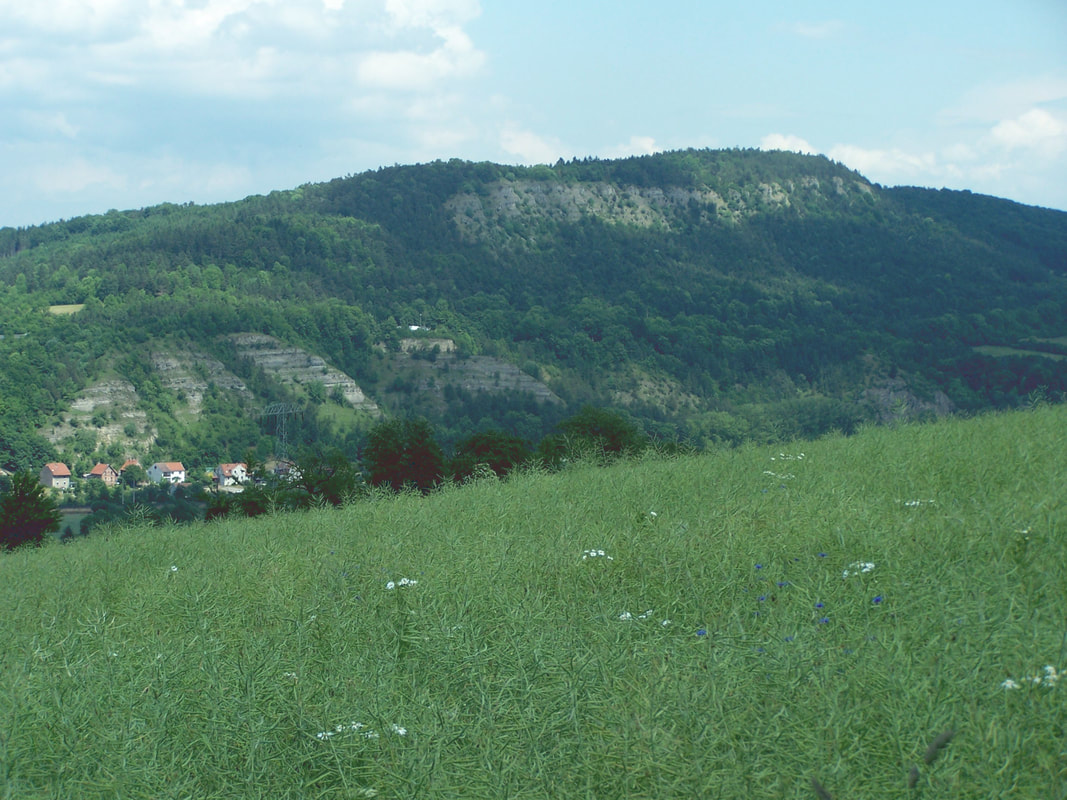|
It was, at first, a slight surprise to the ravens to realize how rarely anyone seemed to notice them. Sure, they made no overt attempts to be seen, but they somewhat expected humans to look around more, take in their environments more, bother to care about what was happening around them. They should have known better, and they very quickly did, but that first time warranted some excitable discussion between them. The one made some sense, at least. He looked normal, if a bit large; but his companion had a distinct blue tint to her, flowing strips of faintly glowing color just barely perceptible among the black feathers. If nothing else, the idea that people could glance right past a bird with an otherworldly, shifting glow, and never seem to notice was a testament to something buried deep in the minds of mankind. They were always together, just out of sight. On the night when a single woman first uttered the name of Hekate and a goddess was born, the ravens were there to greet her. When Father Josef Klappenger went scurrying down the side of Hörselberg hill clutching an infant, they were in a tree that he leaned on to catch his breath and resist the urge to look back. When Jackie Veracruz and John Matteson first stood on the fire escape of an apartment in Chicago, the ravens rested on a roof directly ahead of the humans, among a flock resting on its way south. When Father Benedict de Monte walked silently away from the fire outside of Southport, North Carolina, thinking himself the only living soul to know how the blaze began, the ravens were turning their attention to another form moving through the water. That is not to say they were never seen. The annals of human history record them, sometimes in a manner that would reflect on the species as a whole, sometimes as a singular or dual part of the supernatural world. They were not the archetypes of ravens; whatever ensured that ravens would exist seemed to take little notice of them. But they were the Ravens, the mold by which much of human thought on ravens would be fashioned. As mankind found less and less reason to know every living thing observing them, the ancient witnesses drifted further into the background. Eventually, they were lost to even the most observant eyes, becoming little more than ambiance. The ravens did not seem to mind. They continued to watch, selecting their entertainment with no apparent system or guide that any human would be able to detect. It would be a long time before anything changed much for them. But change was coming, and they had known it for some time. It was part of the long night in Norway. The ravens were preening when a cleft opened in the side of a mountain and three figures stumbled out into the snow. Benedict and Daniel were on either side of Matteson, his arms over their shoulders and his left eye bleeding. The black raven turned away. The other leaned over to him. “It’s nearly time,” she whispered. Voices carry in this place, she knew, and it was not suitable for the humans, or near-humans, to hear her now. “Are you ready for this?” There was a long pause. “Yes.” Benedict, Daniel, and Matteson passed under the ravens and managed to find the car they had left waiting. Benedict was urgently explaining the dangers Matteson faced with his wound exposed to this weather. Daniel was trying to offer comfort. Matteson didn't seem to hear either of them. “You don’t seem ready,” she said as the car started and then drove away. “I…I’ll be fine. It’s just hard.” “We aren't trapped in this flow yet. We can go somewhere else for a while if you need.” “No. It’s nearly time. We move forward.” “You mean I move forward.” “I'm with you a little while longer, yet.” As the car vanished into the long night, she sighed. “To the next moment, then.” The birds took to the air, and then vanished.
0 Comments
Late in the summer of 1943, a light was seen briefly in the clefts of the Hörselberg hill in Germany. The few residents who witnessed it muttered prayers and averted their eyes. It was known what one could expect when the hill opened, as it had so many times before. The most stunning ladies could be seen dancing in its light, and from deep under the hill, a magnificent song struck the heart of any poor soul who dared venture too close. Some old tales said it was the voice of Venus herself, others a great queen of the fae or some other mighty spirit. Whoever she was, when a man was smitten with her song and tarried in her court, he was lost. Only one, a minstrel, was ever believed to have returned, and went pleading to Pope Urban IV for redemption. The pope condemned the man, swearing his certainty that his scepter would bloom before God could forgive such an offense. And with that verdict, the minstrel returned to his new queen, and was never heard again.  Blick vom Kohlberg bei Wutha auf den Kleinen Hörselberg by Metilsteiner. Used under Creative Commons. But on this night, no man entered the court. Instead, a priest named Josef Klappenger, emerged carrying an infant boy, only a few months old. The priest had been missing for nearly two years, and the people were hesitant to accept him back. He and the child were taken to Rome, to be judged in light of his station. There, he reported his tale. Only rumors emerged from these sessions, whispers of a priest who fell into despair and, on a walk through the countryside, heard a soothing voice offering him aid. In his weakened state, he was no match for the temptation, and entered the mountain. What happened there was never spoken again, and those who witnessed his confession simply crossed themselves and hurried along when asked about it. The child was the priest’s duty, that much was known. His origin, and how the priest smuggled him from the mountain, were a closely-guarded secret. But I saw what happened that day. And I followed the pope into his chambers, and stood by as he gazed thoughtfully at an old scepter, with blossoms hundreds of years old and as fresh as the day they grew. The priest was restored and, with the boy, sent to a parish in Venezuela, far from the temptation of the mountain. The mountain remembers them, though; and on the 18th of May, every year, the shining ladies of Hörselberg hill sing for a child that may one day return. |
AuthorI watch. Boost on TopWebFictionTall Tales: Volume Two Now available
Archives
October 2022
Categories
All
|
Story Blogs |
Resources |

 RSS Feed
RSS Feed